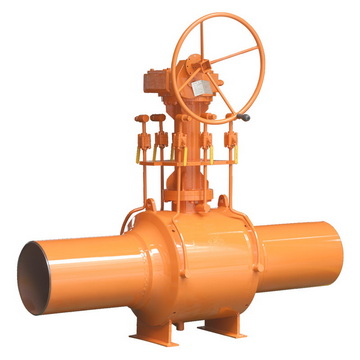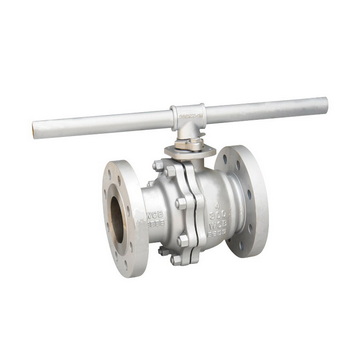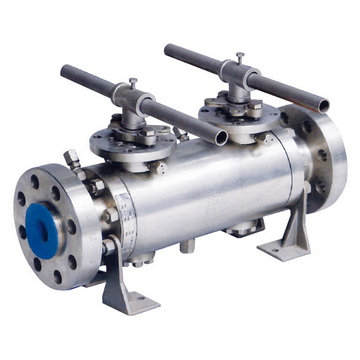Top Stainless Steel Ball Valve Manufacturers and Suppliers in Japan
Content Menu
● Introduction to Stainless Steel Ball Valves
● The Japanese Edge: Why Choose Japanese Stainless Steel Ball Valve Manufacturers?
● Leading Stainless Steel Ball Valve Manufacturers in Japan
>> Kyoto Valve & Control (KVC)
● Valve Types and Their Industrial Applications
● Applications Across Industries
● OEM Services and Global Supply Chain
● FAQ
>> 1. What distinguishes floating ball valves from trunnion ball valves?
>> 2. Are Japanese stainless steel ball valves suitable for offshore applications?
>> 3. What international certifications do Japanese valve manufacturers typically hold?
>> 4. How do digital or smart ball valves enhance operational efficiency?
>> 5. What are the benefits of OEM services with Japanese ball valve manufacturers?
Japan has long been recognized for its advanced engineering, manufacturing precision, and unwavering commitment to quality. Among its critical industrial sectors, stainless steel ball valve manufacturing stands out due to its strategic importance in industries such as petrochemicals, water treatment, offshore drilling, and gas. This article explores the leading stainless steel ball valve manufacturers and suppliers in Japan, highlighting their product innovations, applications, and global impact. It also compares their offerings with general market trends, emphasizing why Japan remains a hub for excellence in valve technology.

Introduction to Stainless Steel Ball Valves
Stainless steel ball valves are pivotal components in fluid control systems, enabling reliable on-off flow regulation with minimal maintenance. Thanks to their durability, corrosion resistance, and precise sealing, they are widely used in high-pressure and corrosive environments such as oil and gas pipelines, chemical plants, seawater desalination, and offshore platforms. Japanese manufacturers specialize in various types of ball valves including floating ball valves, trunnion (ear-axis) ball valves, and top-entry ball valves — all meeting rigorous international standards including API, JIS, ISO, and ASME.
Stainless steel as a material offers outstanding resistance to oxidation, corrosion, and mechanical stress, making it ideal for valve bodies and internal components. The choice of stainless steel grades such as CF8 and CF8M corresponds to widely recognized American and Japanese standards, largely equivalent to SS304 and SS316 respectively, which provide a balance of strength, corrosion resistance, and cost-efficiency. The machining and finishing processes used in Japan's ball valve factories ensure precise seat alignment and smooth operation, significantly reducing the risk of leakage and premature wear.
The Japanese Edge: Why Choose Japanese Stainless Steel Ball Valve Manufacturers?
Japanese stainless steel ball valve manufacturers stand out due to their long legacy of innovation, strict quality control protocols, and integration of cutting-edge technologies. They combine classical manufacturing skills with modern digital engineering to produce valves capable of performing in extreme conditions, ranging from sub-zero cryogenic environments to high-temperature chemical processes.
One key aspect of Japanese manufacturers is their dedication to research and collaboration with national universities and engineering institutions, which fuels the development of next-generation valve designs. For example, many manufacturers incorporate advanced sealing technologies, such as double metallic seats and soft elastomeric seals designed for zero-fugitive emissions, in compliance with international environmental directives.
Moreover, Japanese companies have embraced Industry 4.0 and IIoT concepts, integrating smart sensors and communication modules into valve designs. This allows real-time monitoring of valve status, pressure, temperature, and potential leak detection, facilitating predictive maintenance and remote control, which are crucial for minimizing downtime in critical industrial installations.
Leading Stainless Steel Ball Valve Manufacturers in Japan
Kyoto Valve & Control (KVC)
Established in the early 1950s, Kyoto Valve & Control has pioneered several valve innovations that have set global quality standards. Their floating ball valves incorporate a patented sealing system that significantly reduces fugitive emissions—a common challenge in the oil and gas sector due to volatile organic compounds (VOCs). KVC's product range covers small bore valves for instrumentation to large diameter valves capable of handling pressures exceeding 2,000 bar. Additionally, their valves are designed with cryogenic applications in mind, ensuring operational reliability at temperatures as low as –196 °C.
KVC ensures their faucets undergo stringent testing procedures, including pressure cycle tests, leak detection under various media, and material traceability, essential for safety in upstream and downstream oil and gas installations. The company's extensive certifications and global supply networks make it a preferred partner for multinational corporations seeking to invest in reliable valve solutions capable of withstanding harsh environments.
Sawamura Valve Co., Ltd.
Founded over 90 years ago, Sawamura Valve has evolved its expertise from general purpose fittings to specialized high-pressure trunnion ball valves. The hallmark of Sawamura valves is their robust “Sawamaster™” seal technology, engineered to maintain absolute zero leakage under high differential pressures common in LPG storage tanks and chemical processing plants.
Sawamura's emphasis on metallurgy allows them to manufacture valves capable of resisting not only physical wear but also chemical attacks from aggressive substances like hydrochloric acid and seawater, which are encountered in marine and petrochemical industries. Their ability to produce customized valves in stainless steel, duplex, and super duplex materials expands application possibilities. Furthermore, Sawamura's comprehensive after-sales and technical support, with multilingual teams, facilitate global deployment and maintenance.
Plumberstar Co., Ltd.
Plumberstar represents a new wave of innovation, integrating IT and automation technologies with traditional valve manufacturing. Since its establishment in the mid-20th century, Plumberstar has shifted towards smart valve systems, offering products such as “StarLink™” ball valves equipped with sensors able to relay data on valve position, pressure variation, temperature, and integrated actuator diagnostics. This creates opportunities for real-time operational control and rapid troubleshooting that reduce costs and improve plant safety.
Their portfolio includes forged and cast stainless steel valves, subsea valves designed for harsh saltwater environments, as well as actuated models suitable for automatic pipelines and smart infrastructure. The company's products meet ISO and CE standards, making them suitable for both domestic and international markets, with applications ranging from municipal water supply to complex industrial plants.
NDV Co., Ltd.
NDV specializes in valves engineered specifically for the oil and gas offshore sector, with a focus on high-pressure and double-block-and-bleed trunnion ball valves. The double-block-and-bleed (DBB) feature is crucial in ensuring positive isolation during maintenance or repair operations within pipelines, preventing hazardous leakage.
NDV utilizes advanced finite element analysis (FEA) and computational fluid dynamics (CFD) during design to optimize flow efficiency and reduce cavitation risks. This holistic approach ensures that valves do not become operational bottlenecks or compromise pipeline integrity. Their manufacturing processes are certified according to JIS, API 6D, and ISO standards, and regularly audited by independent third parties, guaranteeing consistent performance.

Valve Types and Their Industrial Applications
Understanding the distinctions between various types of stainless steel ball valves is essential when selecting equipment for specific industrial uses.
- Floating Ball Valves: These valves feature a free-floating ball held in place by the pressure of the fluid against the valve seats. This design is cost-effective and suitable for medium-pressure operation, commonly used in general water, gas, and oil pipelines where fluid pressure is moderate.
- Trunnion Ball Valves: Featuring shaft supports (trunnions) at the top and bottom of the ball, these valves minimize ball movement and torque requirements, making them ideal for high-pressure and large-diameter installations often found in oil and gas pipelines, LNG plants, and offshore rigs.
- Top-Entry Ball Valves: These valves allow ease of maintenance by enabling access to internal components without removing the entire valve from the pipeline. They are especially favored in refinery and petrochemical plants where accessibility is critical for safety and operational continuity.
Stainless steel ball valves manufactured in Japan incorporate precise machining, advanced seat sealing options (metal-to-metal or soft seats), and automation-ready configurations, providing versatility adapted to a wide range of chemical, thermal, and mechanical service conditions.
Applications Across Industries
Japanese stainless steel ball valves are integral to a variety of critical industrial applications:
- Petroleum and Natural Gas: Japanese valves are deployed throughout the entire supply chain—from upstream extraction to midstream transportation and downstream refining—where resilience, leak-tightness, and pressure handling are paramount.
- Offshore Drilling Platforms: Valves operating in offshore environments must resist aggressive saltwater corrosion, withstand extreme mechanical shocks, and accommodate fluctuating pressures and temperatures. Japanese manufacturers' attention to material selection and quality control ensures reliability in these harsh conditions.
- Water Treatment and Desalination: Stainless steel valves exhibit excellent durability and corrosion resistance in potable water and seawater desalination plants. Their smooth operation and leak-proof performance are essential to maintain hygiene and process stability.
- Chemical and Pharmaceutical Processing: Valves used in chemical plants require inert materials and specialized seat designs to resist aggressive media and contamination. Japanese valve suppliers often customize internal components with PTFE or PEEK seats for enhanced chemical resistance and compliance with sanitary standards.
- Shipbuilding and Marine Engineering: Japanese manufacturers deliver valves tailored for ballast water treatment, cooling systems, and fuel transfer on ships, where precision and seawater durability are indispensable.
OEM Services and Global Supply Chain
OEM partnerships form a critical facet of the Japanese stainless steel ball valve industry. Many manufacturers collaborate extensively with foreign brands, wholesalers, and system integrators to deliver customized valve products that meet unique technical specifications and international standards such as API 6D and ISO 15848.
Such services encompass design assistance, material selection, prototyping, production scaling, rigorous inspection, testing, and packaging suitable for demanding export markets. These partnerships extend operational reach globally, enabling valve users to benefit from Japanese engineering excellence combined with local service infrastructure.
Japanese manufacturers also frequently provide after-sales services including technical consultation, valve repair, spare parts supply, and refurbishment programs. Their commitment to total lifecycle support enhances client confidence and ensures long-term valve performance, especially in mission-critical applications like offshore oil platforms and gas processing facilities.
Conclusion
Japan remains a world leader among stainless steel ball valve manufacturers and suppliers, distinguished by innovation, craftsmanship, and a forward-looking embrace of digital technology. From Kyoto Valve & Control's environmentally conscientious sealing systems to Sawamura's high-performance trunnion valves, and from Plumberstar's integration of smart sensor technologies to NDV's specialized offshore DBB valves, Japan delivers reliability and high standards required by the most critical industrial sectors.
Their expertise covers a comprehensive array of valve types and configurations, backed by rigorous quality systems and global certification compliance. The strong emphasis on OEM partnerships and customized solutions further cements Japan's standing as an essential source of high-quality stainless steel ball valve products, capable of meeting the diverse needs of industries ranging from petrochemicals and offshore drilling to water treatment and shipbuilding.
For factories and producers worldwide looking to collaborate with a trusted partner or source advanced valve technology, Japanese manufacturers present an excellent benchmark of quality, durability, and innovation.

FAQ
1. What distinguishes floating ball valves from trunnion ball valves?
Answer: Floating ball valves have the ball supported only by valve seats and allowed to move slightly within the valve body to create a tight seal using fluid pressure. This design is ideal for low to medium pressure applications. Trunnion ball valves anchor the ball with top and bottom trunnions, reducing ball movement and torque, which makes them suitable for high-pressure and large-diameter pipelines.
2. Are Japanese stainless steel ball valves suitable for offshore applications?
Answer: Absolutely. Japanese manufacturers engineer ball valves specifically to withstand extreme offshore conditions, including high pressure, variable temperatures, and corrosive seawater exposure. Their products meet stringent global offshore industry standards, ensuring safe, reliable operation.
3. What international certifications do Japanese valve manufacturers typically hold?
Answer: Common certifications include ISO 9001 for quality management, CE marking for compliance with European standards, API 6D for pipeline valves, and TUV certifications. Manufacturers may also comply with local Japanese Industrial Standards (JIS), ANSI, and ASTM as applicable.
4. How do digital or smart ball valves enhance operational efficiency?
Answer: Digital or smart ball valves are equipped with sensors and communication modules that provide real-time data on valve position, pressure variations, temperature, and actuator diagnostics. This enables remote monitoring, predictive maintenance, quick troubleshooting, and integration into automated control systems, reducing downtime and operating costs.
5. What are the benefits of OEM services with Japanese ball valve manufacturers?
Answer: OEM collaborations offer customized valve designs tailored to client-specific needs and standards, access to advanced manufacturing techniques, consistent product quality, cost advantages through efficient production, and dedicated technical support. This ensures that clients receive valves optimized for their particular applications and compliance requirements.
Hot tags: Top Stainless Steel Ball Valve Manufacturers Japan, Best Ball Valve Suppliers in Japan, Japanese Stainless Steel Valve Companies, Industrial Ball Valve Manufacturers Japan, Stainless Steel Valve Exporters Japan, High-Performance Ball Valves Japan, Ball Valve OEM Suppliers Japan, Stainless Steel Valve Distributors Japan, Precision Ball Valve Manufacturers Japan, Leading Valve Companies in Japan